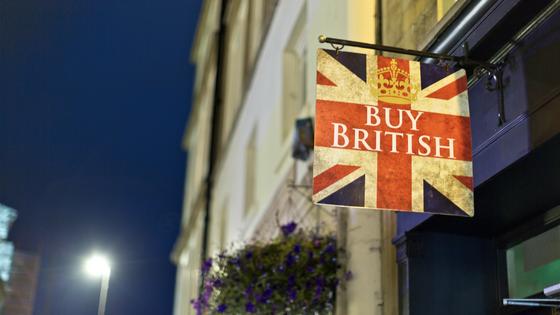Rick Steves’ Europe: How Brexit has impacted your trip to the UK
It’s been nine years since Brexit, when the United Kingdom voted to leave the European Union (EU). That decision sent shockwaves across Europe, and everyone — from pundits to economists to pub regulars — loved making predictions about the impact it would have. It took years to sort out the details, but now that the dust has settled, the consequences of the referendum are becoming clear, including the ways Brexit affects travelers.
On my recent trip to England, I chatted with B&B owners, tour guides, restaurant workers, barflies, taxi drivers, and museum docents — from bustling London to sleepy Ironbridge Gorge — asking how they felt Brexit has impacted tourism. Here’s what I learned.
First of all, Britain remains a rewarding, multifaceted destination. But compared to pre-Brexit times, visitors should generally expect longer lines, higher prices, and reduced hours at sights. Some of these headaches are the result of global factors, including lingering disruption from COVID and skyrocketing inflation. But many locals explained that in the UK, they've been exacerbated by Brexit.
The impact of Brexit is apparent as soon as you land. At the UK immigration checkpoint, there’s no longer a “fast lane” for European passport holders — meaning EU citizens now queue up with everyone else. This means longer lines.
Brexit has also changed the face of who's working behind the counter at many hotels, restaurants, shops, and other businesses. For decades, the British hospitality scene was fueled by young Europeans, especially from Central and Eastern Europe, who eyed the UK as a great spot to hold a summer job while brushing up on their English. Poles, Czechs, and Estonians checked you into your room and pulled pints in the local pub.
But now, since EU citizens need a visa to live and work in Britain, many are opting to take that summer job in Paris or Berlin instead. In their place, businesses are hiring workers from countries like India and Taiwan — because the UK’s Commonwealth ties and mobility schemes make it easier for their citizens to be employed. With an un-predicted twist, for a referendum that promised to “make Britain British again,” an international workforce remains ... only the nationalities have changed.
Big cities like London still attract these workers. But the countryside is getting hammered. “We simply can’t get staff,” said the owner of a Yorkshire B&B I’ve long recommended. “We used to get a lot of Romanians who liked the idea of spending a summer surrounded by York’s history. Not anymore.” So, B&Bs are either closing altogether or trying to get by with a shoestring staff.
When sightseeing, you’ll notice how this staffing shortage also extends to the UK’s major attractions. Britain’s museums rely on international workers to help get through peak season. But these jobs often pay less than hotels and are therefore not as desirable...so the pickings are even slimmer. As a result, opening hours are slimmer, too.
“Windsor Castle and Hampton Court Palace are now closed on Mondays and Tuesdays,” explains Tom Hooper, a long-established English guide. “Even the British Museum shuts at 5 p.m. now.
Shorter hours mean fewer tourists, which leads to less income — so the staffing pinch becomes a financial squeeze for Britain's great sights, too.
After a busy day of sightseeing, Brexit will follow you to dinner. Like tourist attractions, many eateries are shortening their hours. For example, I discovered that a favorite restaurant I recommend in Warwick — which used to be open lunch and dinner — can no longer staff lunch. So, dinner it is.
And that dinner is more expensive. “Now that we’re not an EU country, we pay non-EU tariffs for EU goods," Tom told me. "Your local fish and chips might still cost roughly the same. But if you want Spanish ham, Italian wine, or French cheese, it’ll be more.”
Finally, if you’re planning to take home a souvenir from your trip, you’ll likely pay more for that, too. Before Brexit, non-EU visitors (including Americans) could get a VAT refund — effectively a 20 percent discount — on eligible souvenirs bought in the UK. But that was an EU perk. Now, it’s full price for your British scarf or soccer jersey.
In short, Brexit hasn't "ruined" traveling in Britain — but it has added some wrinkles. Chatting with locals, I heard many takes. Some blame the referendum for everything, while others point to the role played by new technologies, global trends, and the pandemic. Of course, the truth is complicated, and each of these has contributed in its own way. But regardless of who I spoke to — whether they voted to "Remain" or to "Leave" — most agree on one thing: “It’s not the Brexit we thought we’d be getting.”
========
(Rick Steves (www.ricksteves.com) writes European guidebooks, hosts travel shows on public TV and radio, and organizes European tours. This column revisits some of Rick's favorite places over the past two decades. You can email Rick at rick@ricksteves.com and follow his blog on Facebook.)
©2025 Rick Steves. Distributed by Tribune Content Agency, LLC.
(c)2025 RICK STEVES DISTRIBUTED BY TRIBUNE MEDIA SERVICES, INC.














Comments